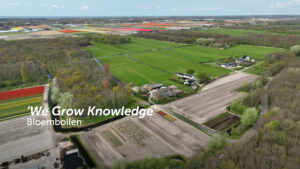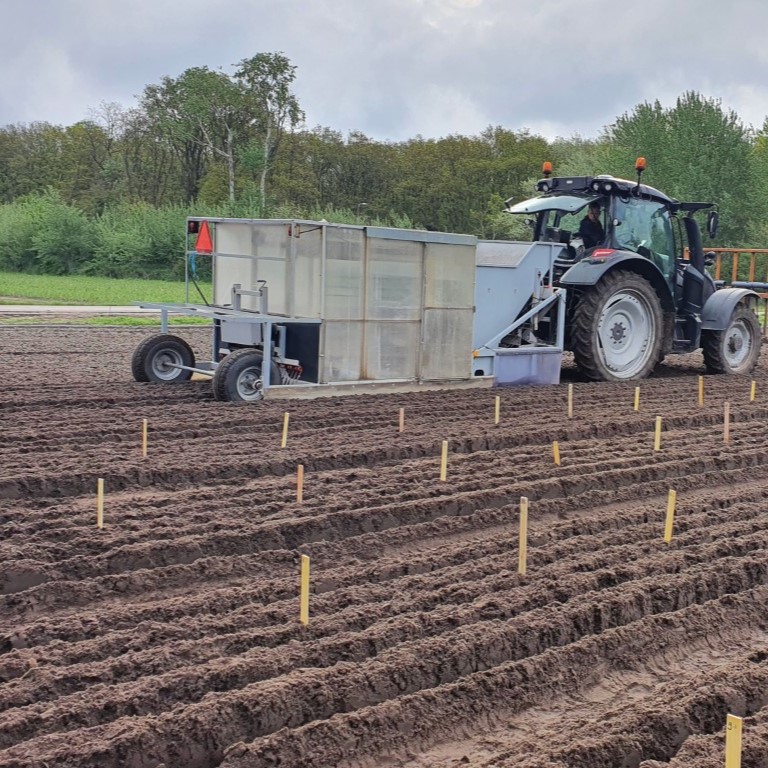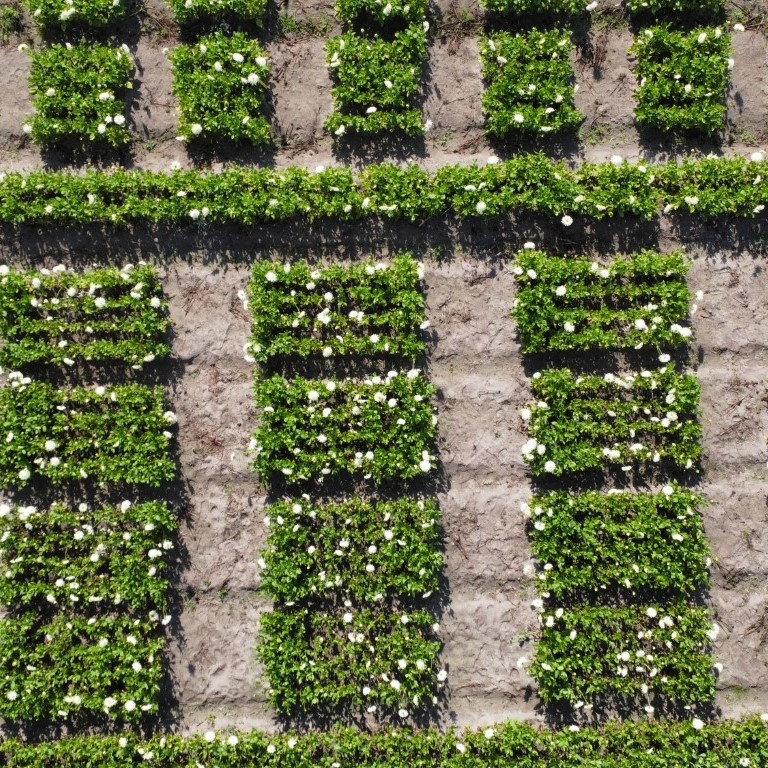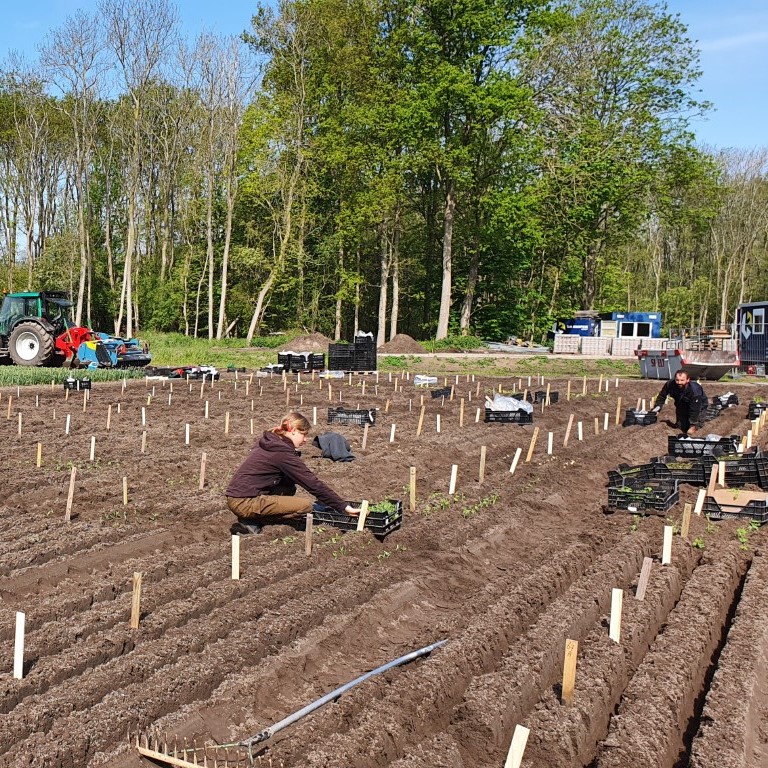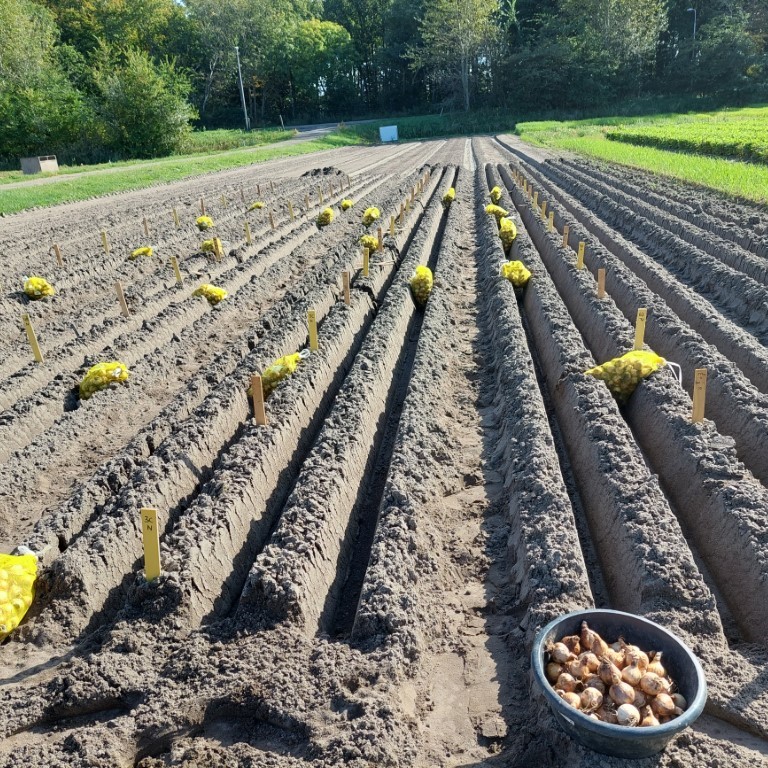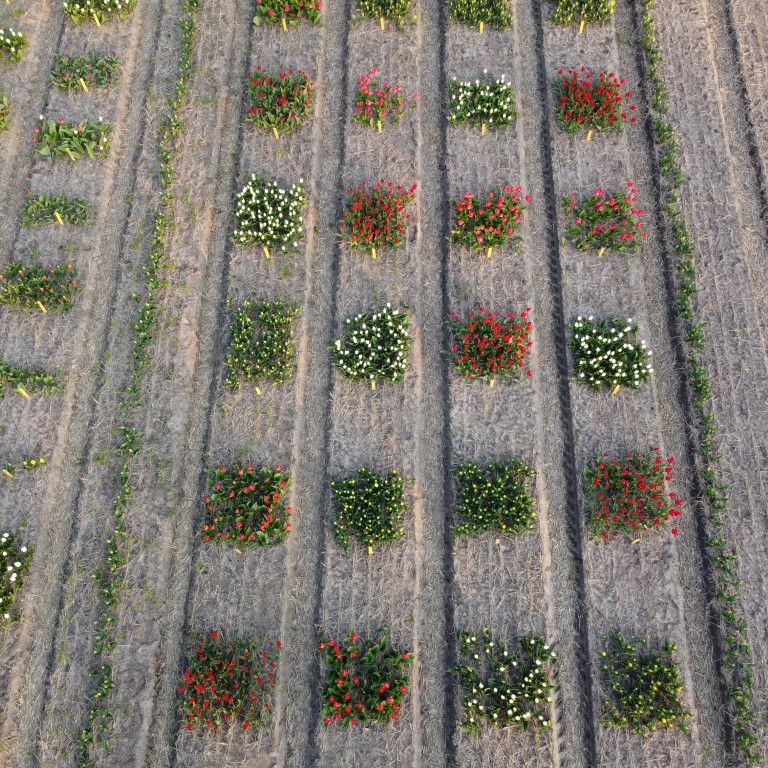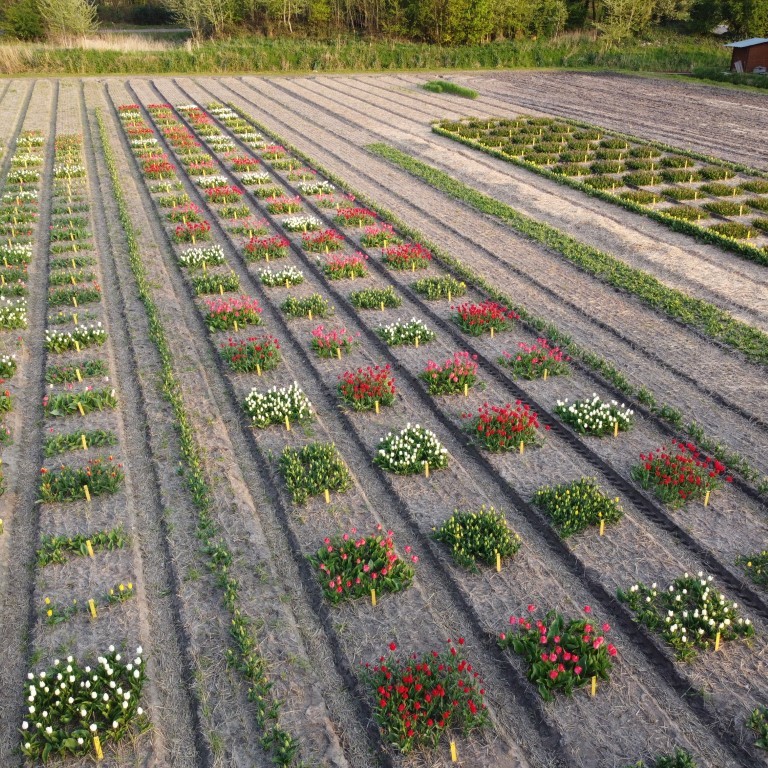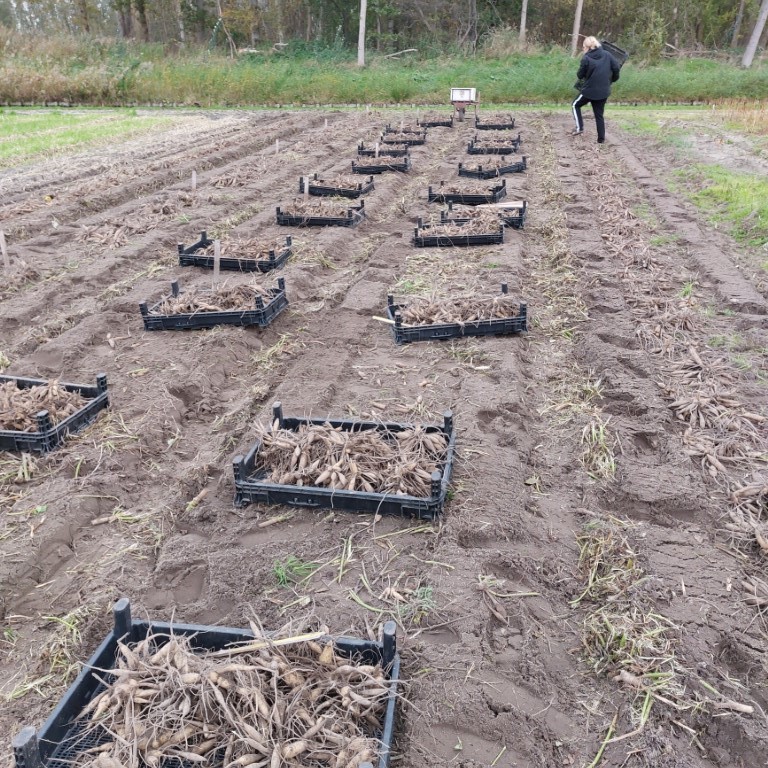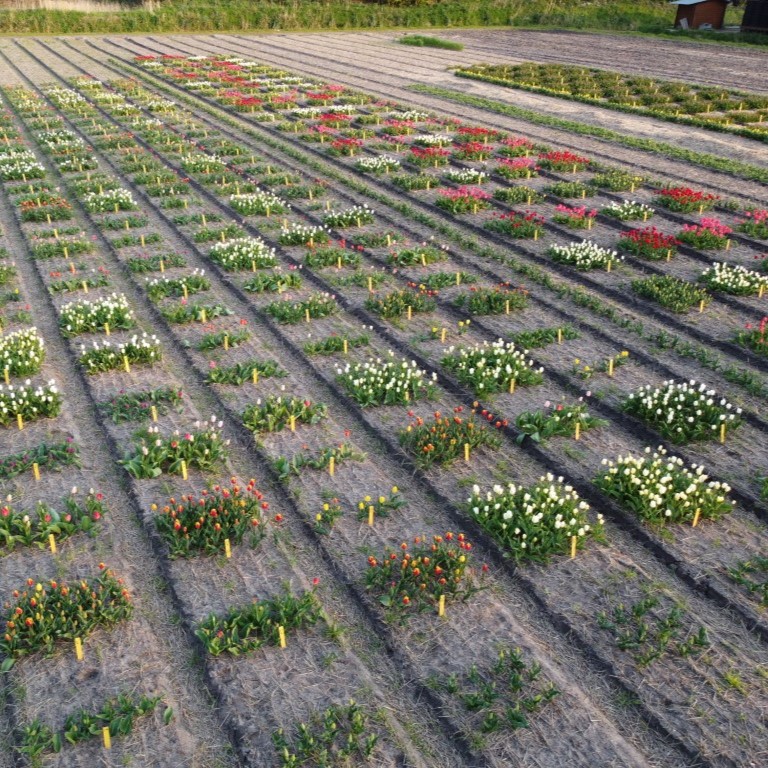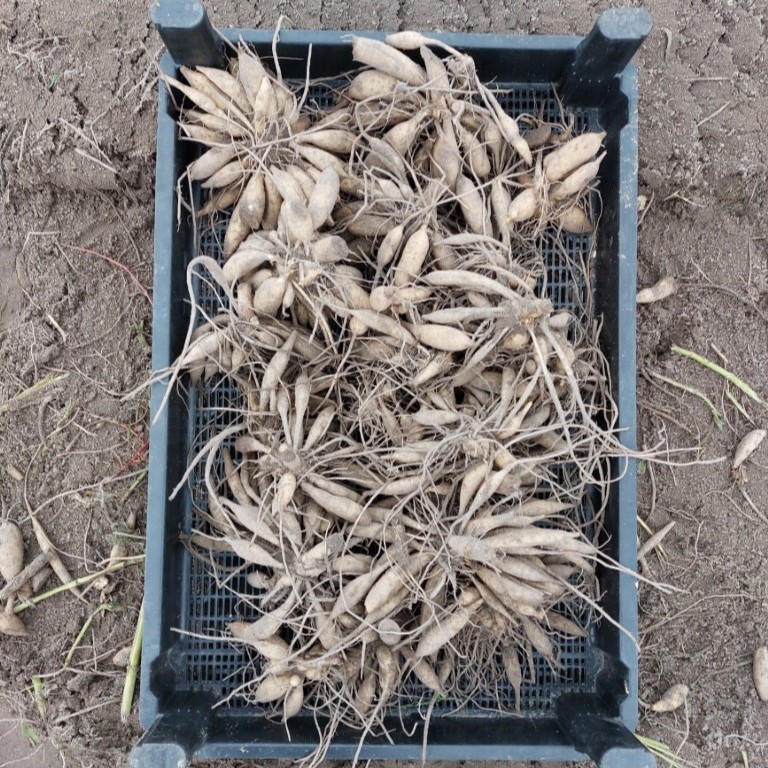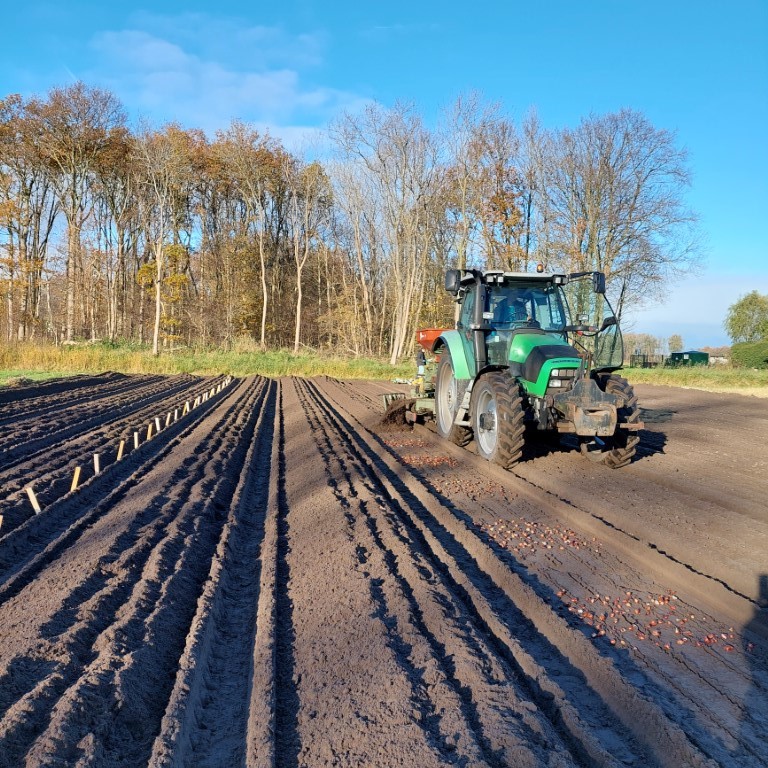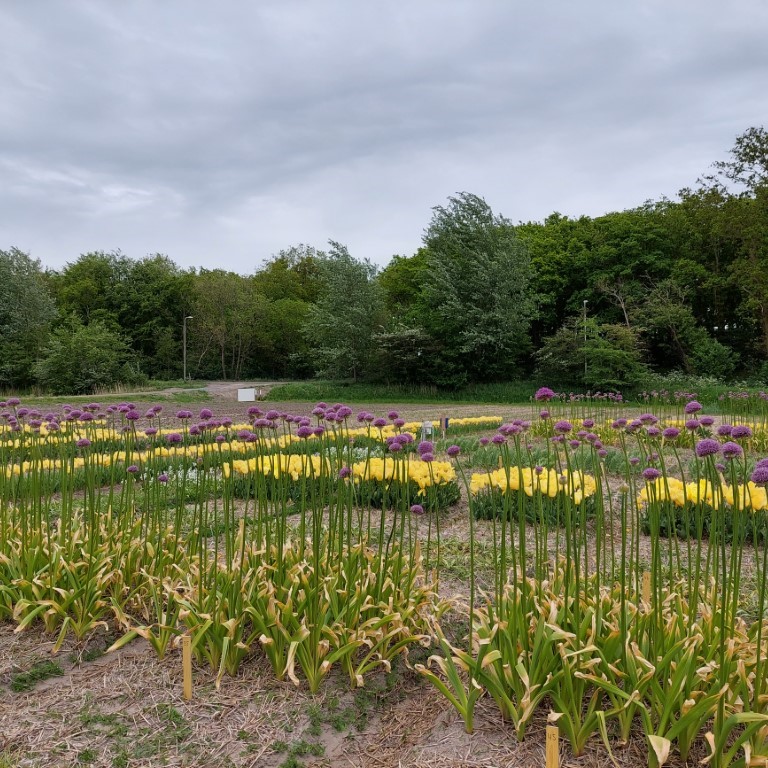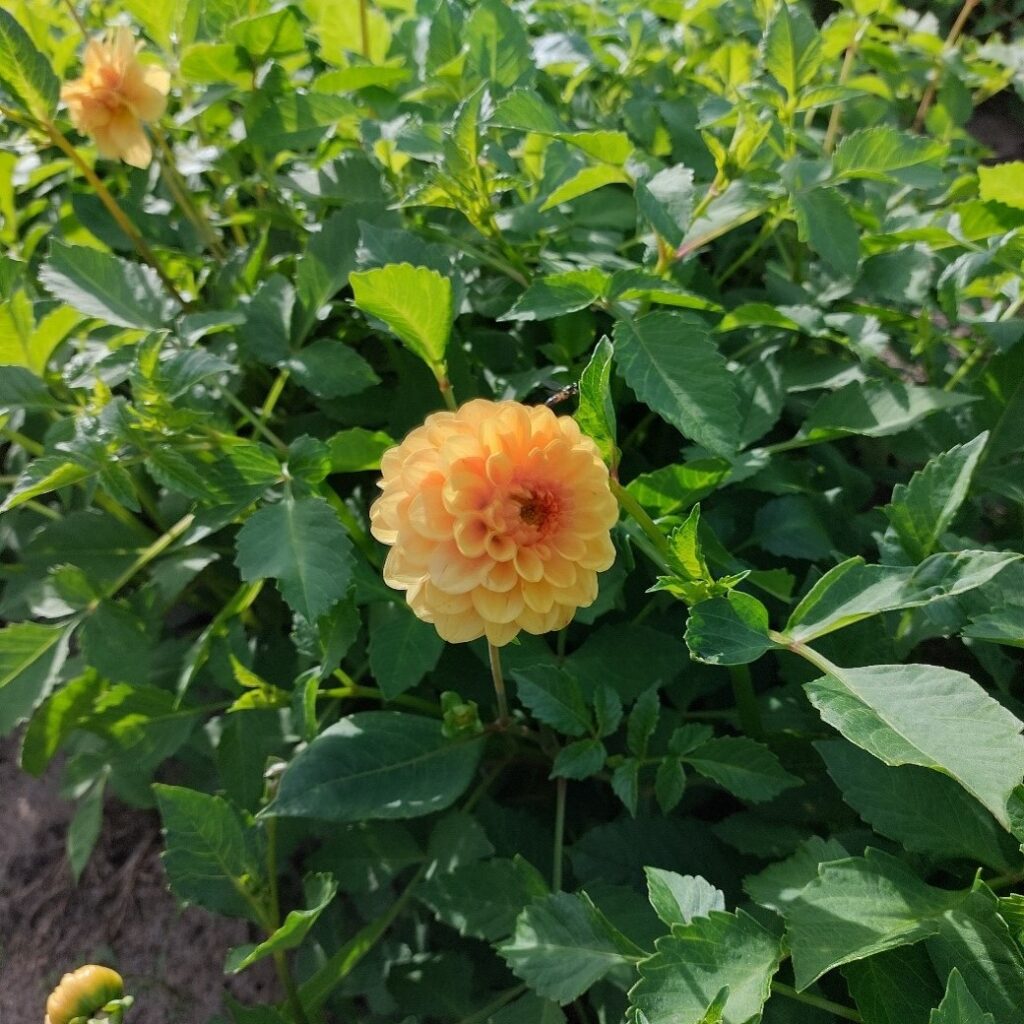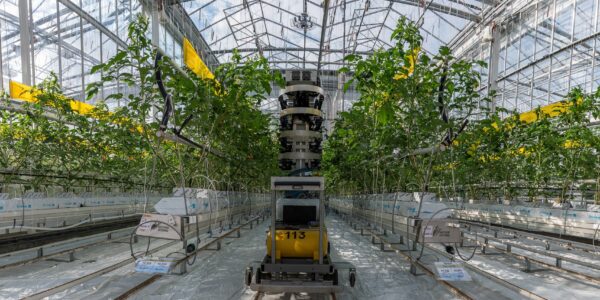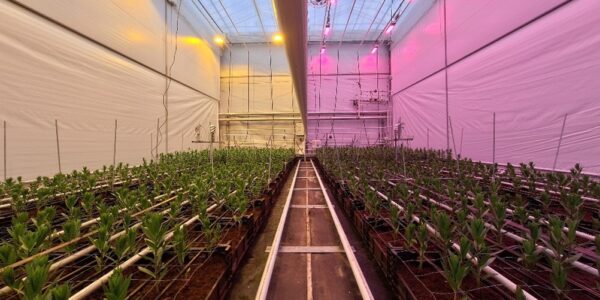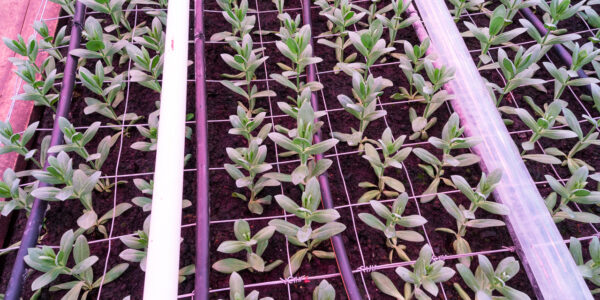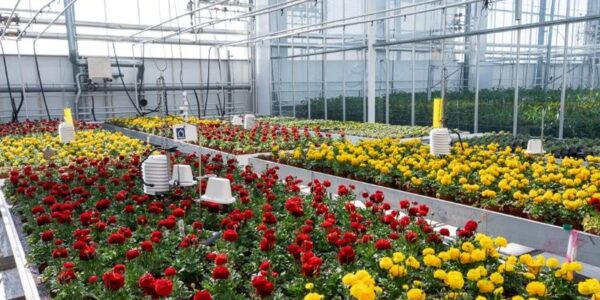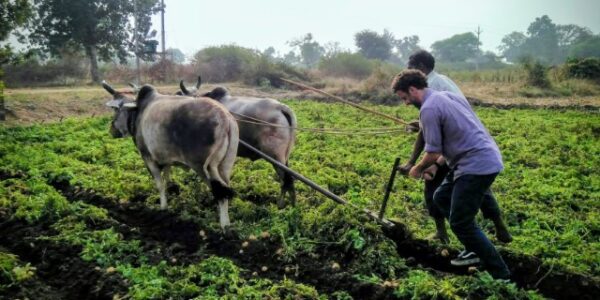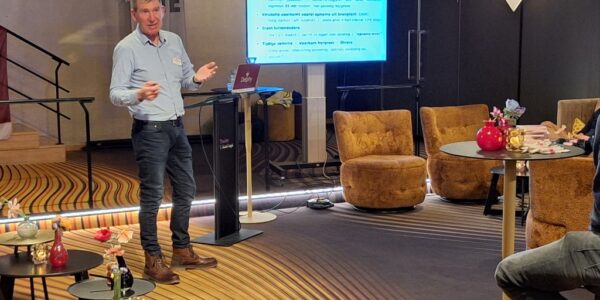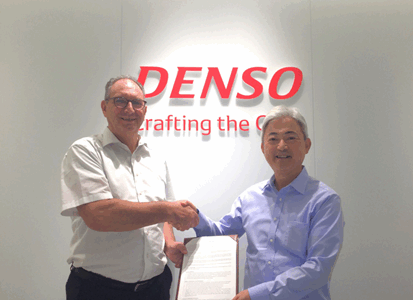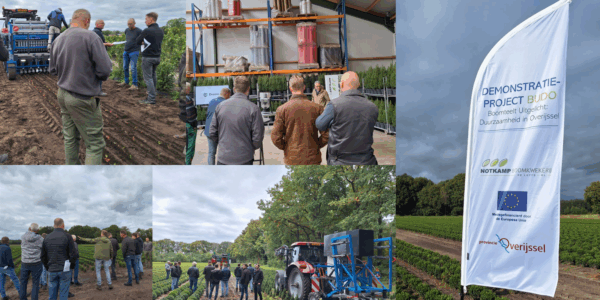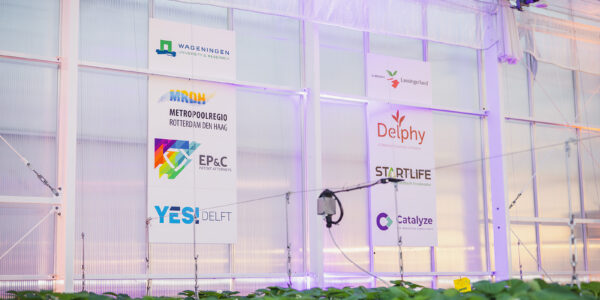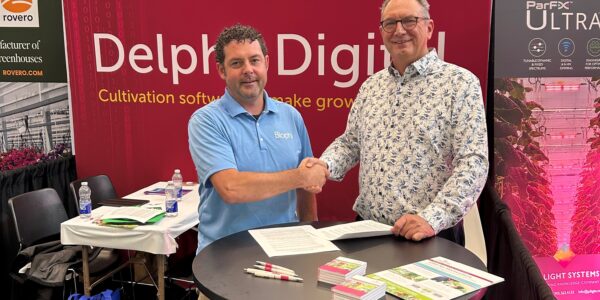Delphy Flower Bulbs Research Garden
Our Flower Bulbs Research Garden, located in the well-known flower bulb region, is a place where we work to advance knowledge by conducting practical research. We do this to make the flower bulb sector future-proof. In close cooperation with growers, we explore and share new developments and technologies in the world of flower bulbs. We conduct research into optimisation of growing processes and more environmentally friendly cultivation methods. In particular, we explore alternative, environment-friendly control methods while not losing sight of yield and quality.
Innovative research: heat treatment
One of the innovative methods we focus on is hot air treatment, an alternative pest control method for various pests. The heat treatment method, also known as hot air treatment, is a non-chemical pest control method that uses heated air to eliminate harmful pests, such as fungi, bacteria and insect thrips, tulip gall mite). A major advantage of this method is that it is effective in preventing pests and diseases without leaving harmful residues. In recent years, trials have been carried out, successfully, in lily, daffodil, gladiolus, Muscari, amaryllis, hyacinth and tulip, among others. Much of this research has led to treatment protocols that are actually used in practice today. During this research, we use, among other things, our own climate chamber in which we can experiment with different temperature and humidity regimes.
Other research
Besides the above activities, our focus is on the performance of biostimulants and green crop protection products in the cultivation of dahlia, tulip, lily and other bulbous crops, among others. We also investigate the suitability of various new green manures and alternative weed control methods such as mechanical weed control.
We Make Growers Better!
At the Flower Bulbs Research Garden, we are working towards a future in which sustainability, quality and innovation go hand in hand. We believe in the power of cooperation and knowledge sharing and therefore work closely with growers and other experts in the sector.
